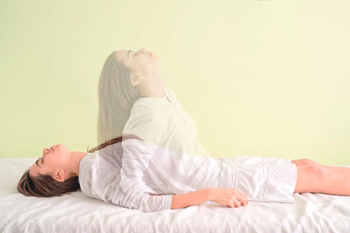Overall Concepts
Our Approach
We at Subtle Realm have the attitude that any set of beliefs or premises presented to others without also indicating ways others can verify those things is thereby incomplete. An unverifiable system from any area of life is at best a proposal, a set of provisional understandings to be taken as possibly true until repeatedly proven either to be true or to be useful with corrections or adjustments in concept practice and understanding … or to be incorrect altogether. This we term “provisional truth”: a set of assumptions people make in order to make decisions, take action, gain experience and understanding through trial and error.
In considering how human consciousness may exist beyond the confines of the physical body we therefore posit a collection of assumptions as a basis for a departure point on the path of enquiry, experiment, discovery, learning and understanding.
Out Of Body Experiences (OBEs) and Near-death experiences (NDEs)
Sometimes called 'lucid dreaming' or 'astral projection', an Out of Body Experience (or OBE) is the experience of being fully conscious and functioning while being outside one's physical body. People who have experienced this often report sensations of floating, perceiving one's own physical body from a different place, and being able to direct or control one's experiences by using thoughts...

